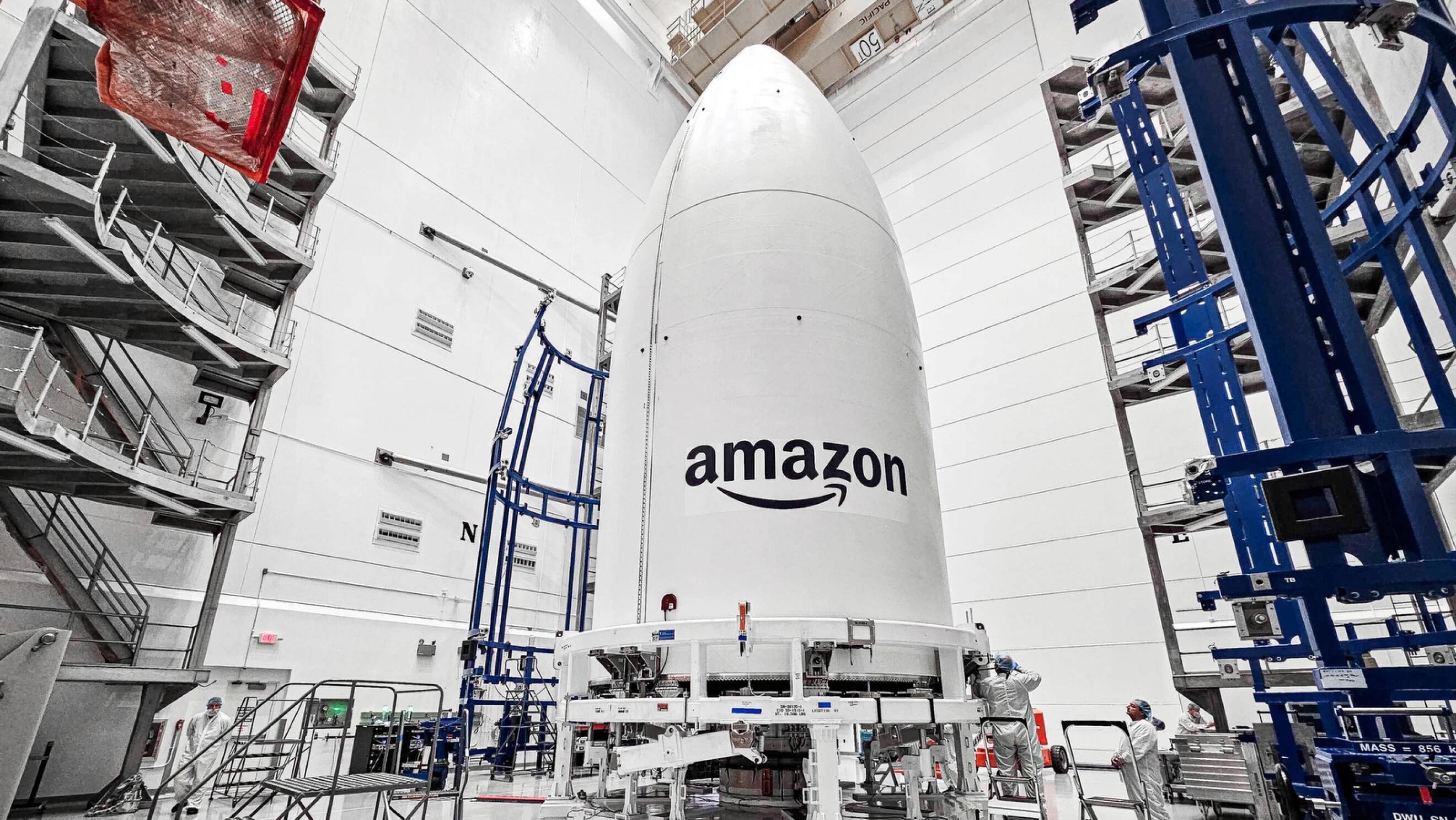Amazon's Project Kuiper Satellites Prepare For Testing After One Late Prime Delivery

Amazon's Project Kuiper has continued to make progress as its pair of prototype satellites get ready to route internet data.
KuiperSat-1 and KuiperSat-2 were launched on the Protoflight mission atop an Atlas V at the beginning of October. The two mark the much-delayed start of the construction of Amazon's low-latency satellite broadband service.
In an update, Rajeev Badyal, Project Kuiper's vice president of technology, confirmed the satellites were stable, generating power, and communicating with Earth. He said: "We're already learning a lot from this mission that will inform further improvements to our production systems."
The next step is for Amazon's cloud biz to perform end-to-end testing of the data network, which will involve routing internet data through AWS to the satellites via a ground antenna and down to a customer terminal. The process will then be reversed to check data flows as expected in the other direction.
Amazon said: "Learnings from the mission will help refine the hardware, software, and infrastructure that underpin the Kuiper System."
- Two Project Kuiper prototype satellites finally reach orbit
- Amazon to launch first Project Kuiper internet satellites
- FAA wants rocket jockeys to clean up after their space launch parties
- Vodafone claims first space-based 5G phone call – no modifications needed
Those lessons will need to be swift if Amazon is to launch half of the thousands of satellites required for its constellation. According to Amazon, production of the satellites in Kirkland, Washington, has yet to kick off. It should begin by the end of the year, in parallel with the Protoflight mission.
The first production satellites are set to be launched in the first half of 2024. Amazon has set the ambitious goal of entering beta testing with early commercial customers in the second half of that year.
While its progress is to be applauded, Amazon is very late to the satellite broadband game. The first two Starlink demo satellites, dubbed Tintin A & B, were launched in February 2018, and the first batch of operational satellites were sent to orbit just over a year later. At the time of writing, more than 5,000 satellites have been launched, and nearly 5,000 remain in orbit, according to figures collected by astrophysicist Jonathan McDowell.
In light of the gap between the launch of Starlink's test and operational satellites, Amazon's aim to get the first production Project Kuiper satellites into orbit in the first half of 2024 is nothing if not ambitious. ®
From Chip War To Cloud War: The Next Frontier In Global Tech Competition
The global chip war, characterized by intense competition among nations and corporations for supremacy in semiconductor ... Read more
The High Stakes Of Tech Regulation: Security Risks And Market Dynamics
The influence of tech giants in the global economy continues to grow, raising crucial questions about how to balance sec... Read more
The Tyranny Of Instagram Interiors: Why It's Time To Break Free From Algorithm-Driven Aesthetics
Instagram has become a dominant force in shaping interior design trends, offering a seemingly endless stream of inspirat... Read more
The Data Crunch In AI: Strategies For Sustainability
Exploring solutions to the imminent exhaustion of internet data for AI training.As the artificial intelligence (AI) indu... Read more
Google Abandons Four-Year Effort To Remove Cookies From Chrome Browser
After four years of dedicated effort, Google has decided to abandon its plan to remove third-party cookies from its Chro... Read more
LinkedIn Embraces AI And Gamification To Drive User Engagement And Revenue
In an effort to tackle slowing revenue growth and enhance user engagement, LinkedIn is turning to artificial intelligenc... Read more

